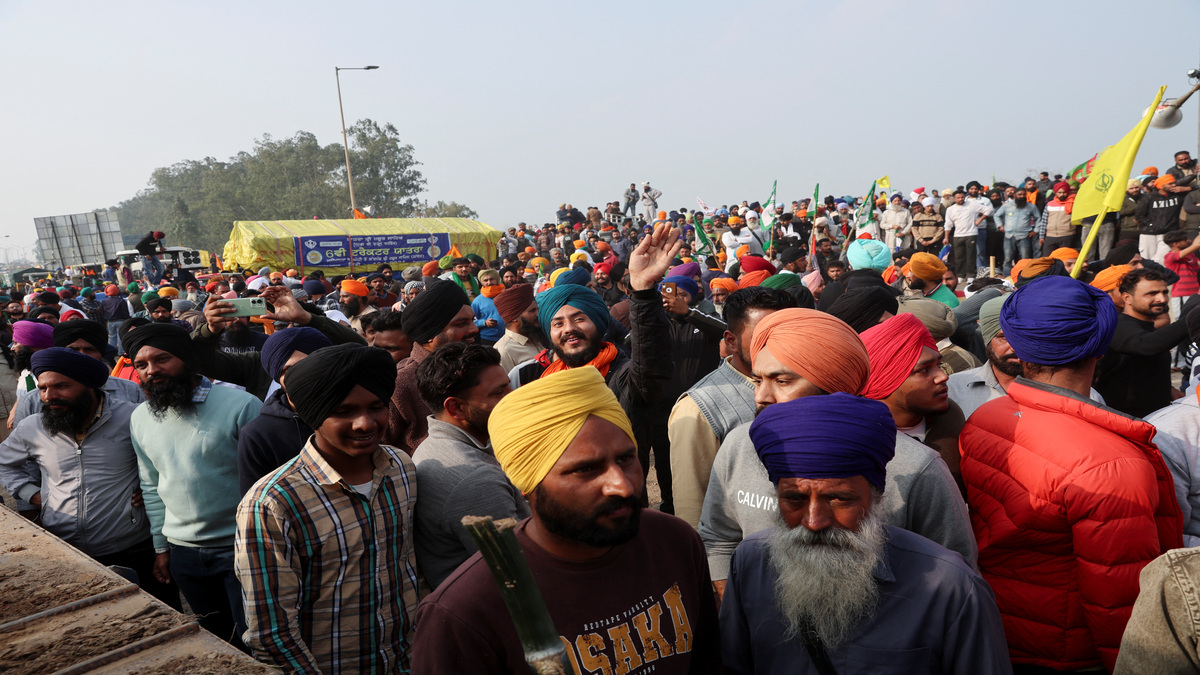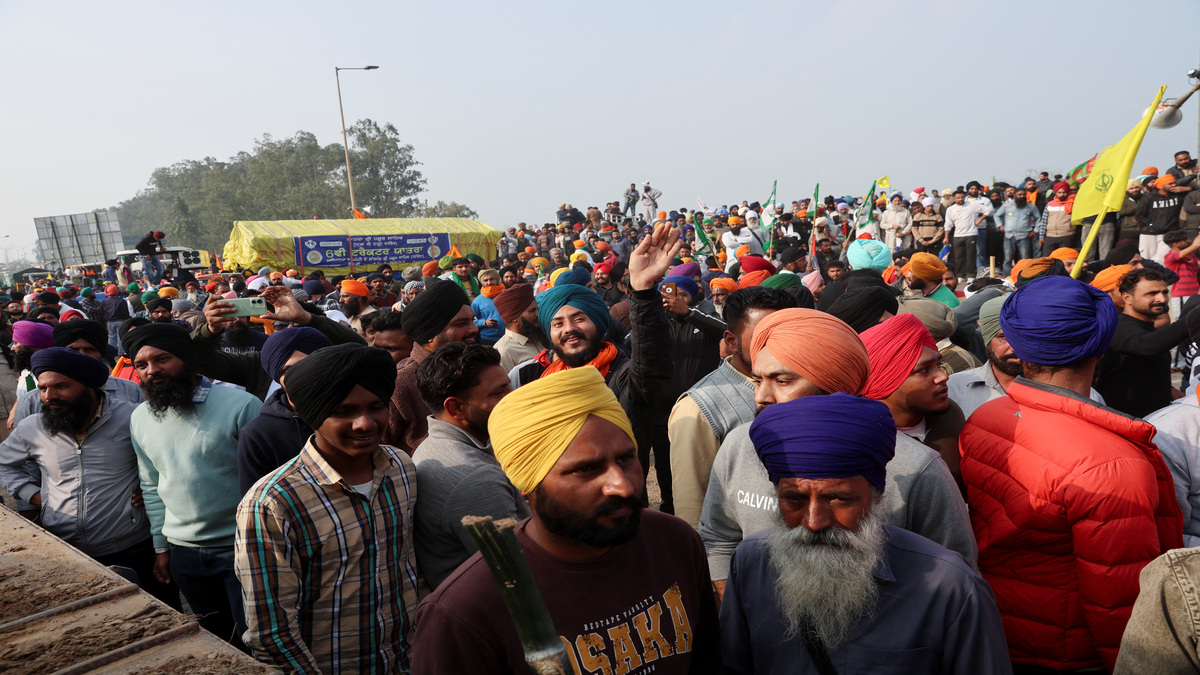Editor’s Note: A network of 60 reporters set off across India to test the idea of development as it is experienced on the ground. Their brief: Use your mobile phone to record the impact of 120 key policy decisions on everyday life; what works, what doesn’t and why; what can be done better and what should be done differently. Their findings — straight and raw from the ground — will be combined in this series, Elections on the Go_, over a course of 100 days._
Read more articles from the series here
***
Bhopal: Come election time, every leader in Bhopal promises to bring Narmada river water to their constituency. The 2019 Lok Sabha polls are no exception. Bhopal Congress candidate and former chief minister Digvijaya Singh’s vision document promises Narmada water to every home in the Madhya Pradesh capital.
That the river is suffering from a major water deficit does not bother any of these leaders. With barely two percent water flow in summer, further diversion of the rivers’ water will have a huge ecological impact, say green activists. Which is of no concern to the poll contestants. And the irony of bringing Narmada water to Bhopal, known as the city of lakes, seems completely lost on the politicos.
Bhopal derives its name from Bhoj Tal (“Bhoj’s Lake”), constructed by Raja Bhoj in the 11th Century. Today, that lake is the Upper Bhopal Lake (Bada Talab), which is connected to the Lower Bhopal Lake (Chhota Talab) by an aqueduct. The two lakes not only supply water to the city, but are also popular recreation spots.
Bhopal also has four major reservoirs: Halali, Kaliyasot, Kerwa and Hathaikheda. But despite the availability of these water sources, and experts’ assertions that the city was designed to be able to survive on their local water sources, 30 percent of the city’s water needs are met via an 80-kilometre pipeline from the Narmada.
The once fabled river is virtually the lifeline of Madhya Pradesh. Around 29 cities get their drinking water from the Narmada water, like the state’s commercial capital Indore, which is served by a 70-kilometre pipeline to bring Narmada water. Besides, the irrigation needs of almost every part of the state are met by the Narmada. With every passing election, more and more political leaders promise to bring the river water to their area, and do so. Thus, the number of cities and people dependent on the river keeps increasing exponentially.
Experts and activists working to conserve the Narmada say pipelines, irrigation and power projects are exploiting the river and damaging its natural flow. “Excessive and unscientific sand mining and deforestation have ruined the Narmada," said Medha Patkar. The veteran activist of the Narmada Bachao Andolan has dedicated her life to defending the river.
Former chief minister Shivraj Singh Chouhan too had promised Narmada water to many regions with river linking projects. The Narmada-Kshipra river linking project, for instance, provides water to Ujjain. Other cities like Satna are also hoping to get Narmada water as local leaders have promised a canal there.
In Bhopal, virtually every corner is being dug up for the Narmada pipeline. Officials of the Bhopal Municipal Corporation said only 70 percent of the city’s needs are fulfilled from local sources. “Earlier we used to take 30 Millions of Gallons per Day (MGD) from the Upper Lake,” said MP Singh, Additional Commissioner, Bhopal Municipal Corporation. “But due to lack of availability, we cut this down by 19 MGD. Now, we are using 36 MGD of Narmada water and are working to use its full capacity of 40 MGD.
“The Rs 415 crore allocated for the Narmada connection has been utilised successfully,” said Bhopal mayor Alok Sharma, who is with the BJP. “About 80,000 to 90,000 households are getting Narmada water and another 60,000 households will be added in the next six months. Narmada water has reached most parts of the city and we will increase connections as needed.”
Reacting to Digvijaya poll promise, Sharma said water levels were decreasing and the river cannot be overexploited. “When Digvijaya was chief minister, we requested him to bring Narmada water to Bhopal,” recalled Alok Sharma. “At that time, he made fun of us and asked us to relocate to Hoshangabad to get Narmada water. He said it was not possible to bring the Narmada to Bhopal. The BJP government brought the water and we know how to utilise it in the best interests of the public.” Despite repeated efforts, Digvijaya remained unavailable for comment.
Bhopal’s citizens, even though they are benefiting from the Narmada, are concerned for the health of the river. “Bhopal has a rich history of water conservation,” said Rakesh Malviya, a resident of Awadhpuri Bhopal. “We have many water sources. Not just Bhopal, but most cities were established near a water source. But we have ruined our local sources. Narmada is probably the only river in Madhya Pradesh which has some water, but instead of protecting it, the government is exploiting it.” Emphasising the need for water conservation, Rakesh said, “We need to restore catchment areas of rivers and lakes so that it can store rainwater.”
Decreasing groundwater levels is another cause of worry that is being ignored in the heat of the campaign. According to a recent report of the Central Ground Water Board, groundwater is dropping four metres every year in some regions, including Bhopal. “We want to rely only on surface water,” said Kartik Sapre, a PhD scholar at IIT Delhi and associated with Narmada Samagra, an organisation founded by former environment minister Anil Madhav Dave. “If we recharge groundwater every rainy season it would fulfil our needs for the whole year. We should also focus on rainwater harvesting”.
A report by the World Resources Institute (WRI) identified the Narmada as one of six major river basins in the world facing an existential crisis. The report said that the 2017 water crisis in the river basin forced the Gujarat government to stop using water from the Sardar Sarovar dam for irrigation. Also, the April 25, 2019, storage bulletin of the Central Water Commission pointed out that the Bargi and Indirasagar dams on the Narmada have just 42 and 35 percent of its respective capacity.
“We need a water audit of the Narmada that would show the reality of water availability,” said Vinaytak Parihar, an activist working on Narmada conservation. “Narmada cannot fulfil the demands of all the pipelines and other government projects.”
That water levels in the river have been declining in recent years is commonly known. “A river is only known as a river when it flows,” said water expert Vinod Sharma. “But only two to four percent of water remains in the Narmada this summer season. Governments and politicians should think about restoring locally available water resources and sustainable use of water to ensure the sustainability of Narmada’s flow. If we exploit a river like this, it will be dead in a few years.”
The author is a Bhopal-based freelance writer and a member of 101Reporters


)




)
)
)
)
)
)
)
)